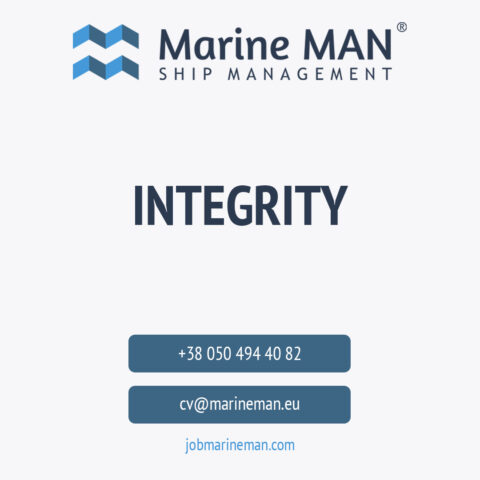Crewing: job interview in English
 Automatic translation
Automatic translation
To get a paid job at sea in Odessa or another large port city, one way or another, you will have to learn to communicate in English. Of course, if you are going to get a job as a sailor on a Greek ship, you should not be afraid of a serious exam, because most of the crew still consists of Russian-speaking colleagues in the shop. But, as many have already seen from their own experience, the Greeks are tight-fisted guys, their salaries are lower than European ones, and they don’t like to part with money. But in other European courts, salaries are quite at the level. But - yes, that's right, you need a good level of English.
What interviews are conducted in crewing
First of all, it is worth clarifying with whom you have to communicate: with the manager of the company, with a representative of the future employer, or with one of the officers working on the ship where you want to go. So you should expect radically different approaches to the conversation.
Interview with a manager
An employee of a crewing agency, as a rule, will talk about general topics. His task is to find out your general level of language proficiency, to understand how you master your specialty and how well you know what your duties will be on the ship. So you should expect clarifying questions on the information that you indicated in your profile (resume, CV, etc.). The main evaluation criteria will be as follows:
- how do you perceive English by ear
- can you understand what they want from you
- are you able to answer
- how correctly do you express your thoughts
Interview with the captain-mentor
A different kind of trial awaits you here. The representative of the company has a specialized education and will ask more specific and specific things, delve into the details of professional activities. This type of checks is usually passed by junior officers, as well as those who want to work on a small ship and are looking for a close-knit team. In this case, your professional skills and the ability to communicate fluently in English will be a huge plus, but the captain will also evaluate human qualities, select a person “for himself”.
 Interview with the ship owner
Interview with the ship owner
Such meetings are quite rare, of course, unless you are applying for the post of captain of the ship. In this case, such a conversation will definitely come. Regardless of whether you are communicating directly with the owner of the marine company or with his representative, your task is to make a favorable impression. Imagine that this is the most ordinary interview, of which there are a lot in overland life. Like it - the ship is yours. No - look for another contract.
What they will definitely ask about
It should be noted that one should not expect a uniform approach by type of vessel, for example, “work on a yacht”. The level of questions in any case will vary depending on your specialty. Most often, an interview starts like this:
- What is your present position? What is your rank? - a question about the position (not about the location!)
- What type of vessels did you ride on? - you need to briefly mention your contracts for different types of ships (if any) and name the average deadweight
- What was your trading area (area futuration) of the vessels? - learn the names of the seas, oceans and parts of the world that you have visited on flights
- Did you work with a mixed crew and what nationalities? Did you have any miscommunications? - name nationalities correctly
- How many crew members were there on board the vessel? What responsibilities did you have on board? - the more information, the better, and be sure to clarify the difference in duties at the port, on deck, on the bridge, when mooring, etc.
- What types of cargo did you carry? - for the rank and file, it is enough to name the types of cargo, but for the senior officer this is a reason to start a long conversation
- What are your salary expectations? - name specific numbers and do not confuse numbers
- What is your contract duration? What contract duration do you want? - call clear terms
- Regarding your ship owner (previous ship manager)? What was your company? - it is important to mention not only the name of the company, but also the country in which it is registered